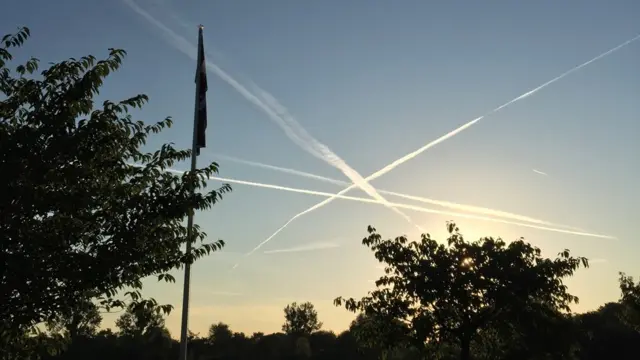Chemtrails: What’s the truth behind the conspiracy theory?
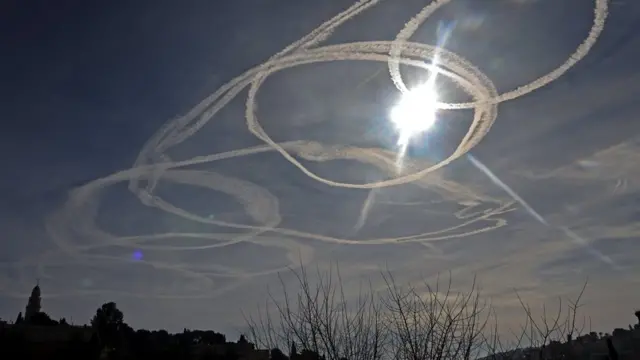
Image source, AFP
- Author, Alistair Coleman
- Role, BBC Monitoring, Disinformation specialist
-
23 July 2022
The word “chemtrails” has trended on sunny mornings this summer – but what’s the truth behind the conspiracy theory?
Look up at a clear blue sky and you might see puffy white trails behind aeroplanes.
They are made up mostly of water and are called contrails or vapour trails, but a growing number of people falsely believe they are evidence of something sinister going on.
Some think malign forces are spraying the population with dangerous chemicals – so-called chemtrails – for purposes that are neither entirely clear nor consistent.
Top Stories
A surge in conspiratorial thinking following the Covid pandemic along with the summer travel season and clear skies mean the once obscure chemtrails theory is now being promoted by major influencers.
What are contrails?
Contrails are formed when water vapour and fine soot particulates from burning jet fuel freeze into ice crystals. In low air humidity, the crystals just dissipate. In higher humidity, they persist, and end up creating visible vapour trails over large areas of sky.
Those humidity differences explain why some aircraft are seen producing vapour trails while others do not.
High humidity means that vapour trails can last for long periods and become thin layers of cirrus clouds, Met Office meteorologist Aidan McGivern told the BBC. Cirrus clouds are short, detached and hair-like and are found at high altitudes. It is unlikely that any of these purported chemicals in the clouds would even reach ground level because they are at such high altitudes, he said.
One persistent belief among followers of the theory is that early morning chemtrails encourage greater cloud cover later in the day – but this can be explained by the natural process of convection. This is the result of the sun warming the ground, causing warm air to rise and condense into clouds later in the day, the Met Office says.
How did the conspiracy theory begin?
Top Stories
The idea that governments or shadowy forces are routinely spraying the planet with chemicals from scheduled passenger flights took hold in the 1990s.
Initially, believers claimed sprays containing a toxic metal, barium, were being used to either pacify or reduce populations.
But the idea evolved along the way, meaning today there are several strands of the chemtrail theory.
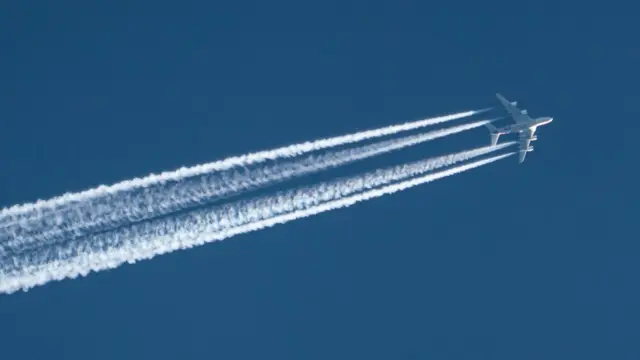
Image source, Getty Images
In recent years, followers have expanded their accusations, claiming the contrails are being used to spread Covid-19, distribute vaccines, initiate “mind control”, reduce the population or vaguely promote a “new world order”.
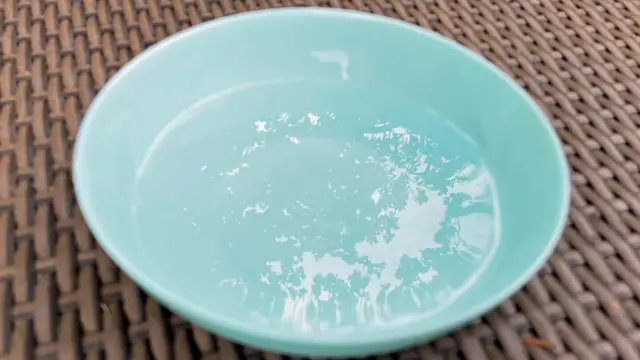
Chemtrail influencers are highly active on platforms such as Facebook and Telegram, where they discuss the day’s alleged “spraying” and track aircraft. Some suggest putting a bowl of white vinegar outside, saying that this clears “chemtrailed” skies.
The phenomenon is international, with followers across UK, Europe, Australia and the Americas – in fact, anywhere under which commercial or military aircraft fly. And it is backed by a few celebrities and popular social media influencers.
Top Stories
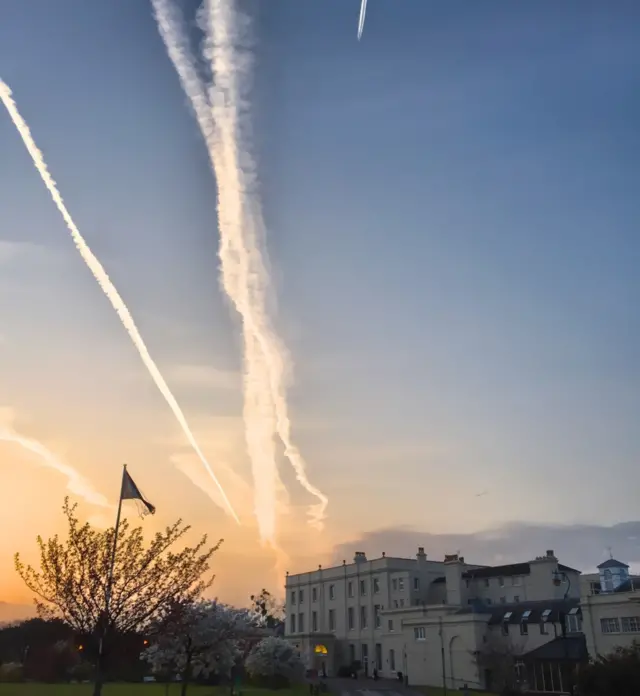
What’s the truth?
Like many persistent conspiracies, the chemtrails idea comes with a kernel of truth.
Chemtrails conspiracy theorists point to such secret experiments to bolster their cause. But their claims blow the historical record out of all proportion, as they claim we are constantly – and very visibly – being deliberately sprayed with tonnes of dangerous chemicals, for an ever-shifting variety of reasons.
Like other conspiracy theorists, chemtrail enthusiasts also latch on to news events to push their agenda, for instance in messages like this posted during the recent UK heatwave:
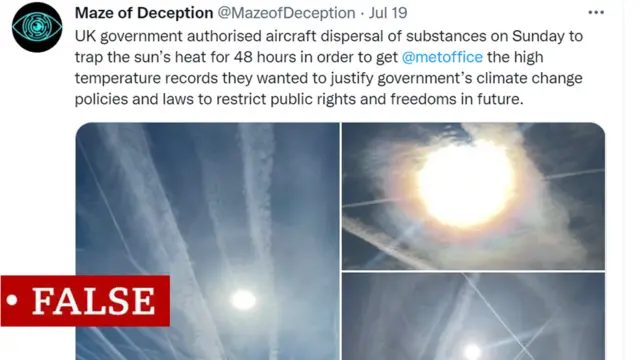
Image source, TWITTER/MAZE OF DECEPTION
There is no evidence the claim in the tweet is true, nor does it explain the record temperatures across Europe at the same time.
The British Airline Pilots Association (BALPA) told the BBC it is aware of these chemtrail theories with “no evidential basis”.
“The distraction of these false theories detracts from what really matters and from areas that we believe should be further studied,” it added.
There is concern that high altitude jets contribute to long-term climate change – not through any deliberate release of secret chemicals, but instead through contrails in a mechanism known as “radiative forcing”.
BALPA told the BBC it is campaigning for a comprehensive research trial into the effect aviation has on pollution, not CO2, as well as the impact contrails are having on a changing climate.
